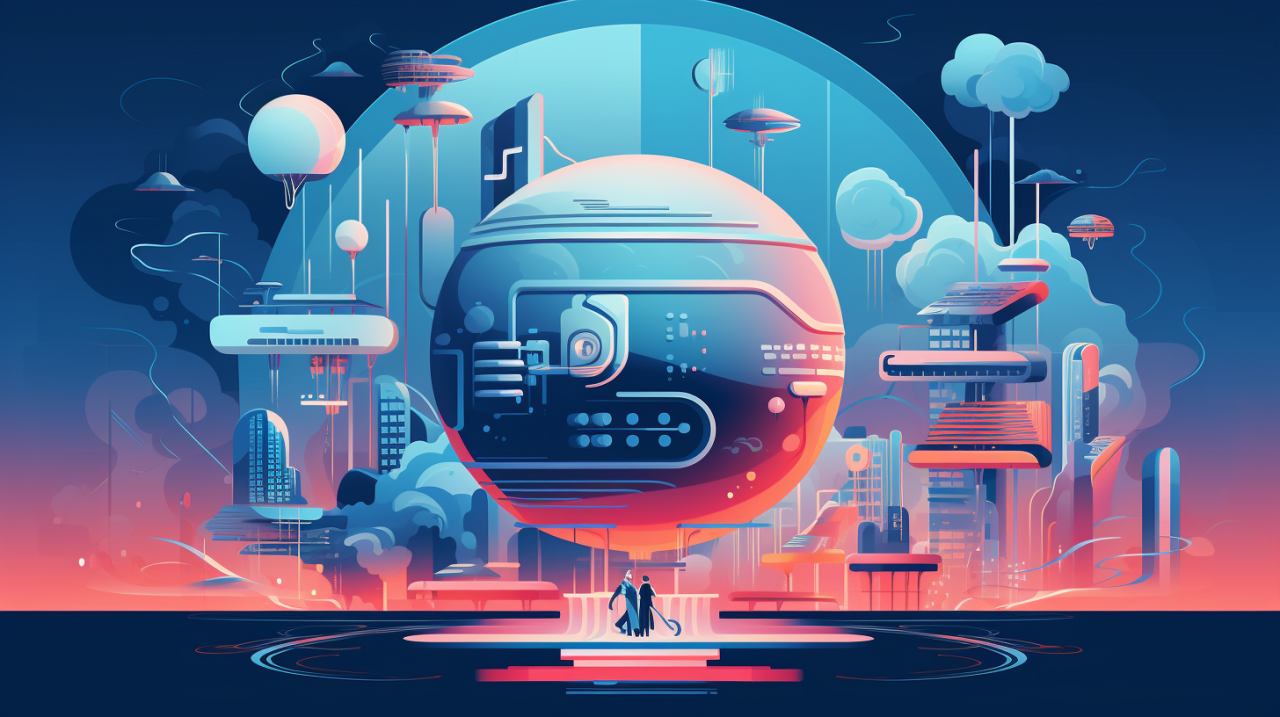Artificial Intelligence (AI) has seamlessly integrated into our daily routines, often without us even realizing it. From smart assistants and personalized recommendations to healthcare advancements and automated customer service, AI is reshaping the way we live, work, and interact with technology. While once considered a futuristic concept, AI is now an integral part of modern society, simplifying tasks, improving efficiency, and enhancing convenience.
AI in Communication and Assistance
One of the most common ways AI impacts our daily lives is through virtual assistants like Siri, Alexa, and Google Assistant. These AI-powered tools help us set reminders, play music, control smart home devices, and even answer general knowledge questions. They use natural language processing (NLP) to understand and respond to human speech, making interactions more seamless and intuitive.
Chatbots are another AI-driven innovation that enhances communication. Businesses and customer service departments use AI-powered chatbots to assist customers with inquiries, providing quick responses and resolving issues efficiently. These bots use machine learning algorithms to improve their responses over time, leading to better customer experiences.
AI in Entertainment and Personalization
AI has revolutionized the entertainment industry by offering personalized content recommendations. Streaming platforms like Netflix, Spotify, and YouTube use AI algorithms to analyze user preferences and suggest movies, TV shows, and music tailored to individual tastes. This personalization enhances user engagement and ensures a more satisfying experience.
Social media platforms also utilize AI to curate content feeds, filter spam, and detect fake news. AI-driven recommendation engines on platforms like Facebook, Instagram, and TikTok analyze user behavior to deliver content that aligns with their interests, keeping users engaged for longer periods.
AI in Healthcare and Medicine
The healthcare industry has witnessed remarkable advancements due to AI. Medical professionals use AI-driven tools for diagnostics, treatment planning, and patient monitoring. AI algorithms can analyze medical images, such as X-rays and MRIs, to detect abnormalities with high accuracy, assisting doctors in making precise diagnoses.
Wearable devices like smartwatches and fitness trackers utilize AI to monitor heart rate, activity levels, sleep patterns, and overall health. These devices provide real-time health insights, alerting users to potential health issues and encouraging healthier lifestyles.
Furthermore, AI-powered robotic surgeries and drug discovery are pushing the boundaries of medical innovation. AI helps researchers develop new medications faster by analyzing vast datasets and predicting drug efficacy, accelerating the process of bringing life-saving treatments to patients.
AI in Transportation and Navigation
AI has significantly improved transportation and navigation, making travel more efficient and safer. GPS navigation systems use AI to provide real-time traffic updates, suggest the fastest routes, and even predict traffic congestion. Apps like Google Maps and Waze analyze data from multiple sources to optimize travel routes and improve commuting experiences.
Self-driving cars, powered by AI, are another groundbreaking innovation. Companies like Tesla, Waymo, and Uber are developing autonomous vehicles that use AI and machine learning to navigate roads, detect obstacles, and make split-second driving decisions. While still in development, these vehicles have the potential to reduce traffic accidents and enhance road safety.
AI in Smart Homes and IoT
The concept of smart homes has gained popularity thanks to AI-powered devices and the Internet of Things (IoT). Smart thermostats like Nest learn users’ temperature preferences and adjust settings accordingly, optimizing energy efficiency. AI-driven security systems use facial recognition and motion detection to enhance home security.
Voice-controlled AI assistants allow users to manage smart devices, such as lighting, appliances, and entertainment systems, through simple voice commands. This interconnected AI ecosystem enhances convenience, making daily tasks more effortless.
AI in Shopping and E-Commerce
Online shopping has become more intuitive with AI-driven personalization. E-commerce platforms like Amazon and eBay use AI to recommend products based on browsing history, previous purchases, and user preferences. This improves the shopping experience by suggesting relevant items, increasing customer satisfaction.
AI-powered chatbots and virtual shopping assistants provide real-time customer support, helping shoppers find products, compare prices, and even complete purchases. AI is also used in fraud detection, identifying suspicious transactions and preventing financial fraud.
AI in Education and Learning
Education has been transformed by AI, making learning more accessible and personalized. AI-powered platforms like Duolingo, Coursera, and Khan Academy provide adaptive learning experiences, tailoring courses to individual progress and learning styles.
AI-driven grading systems help teachers assess student performance quickly and accurately. Chatbots in education assist students by answering queries, providing study materials, and offering tutoring support. AI also plays a crucial role in language translation tools, making information more accessible to a global audience.
AI in Finance and Banking
The financial sector relies heavily on AI for fraud detection, risk assessment, and customer service. AI-driven algorithms analyze financial transactions to identify unusual patterns, preventing fraudulent activities in real-time.
Robo-advisors, powered by AI, assist users in making investment decisions by analyzing market trends and offering personalized financial advice. Banks use AI-powered virtual assistants to answer customer inquiries, facilitate transactions, and improve overall banking experiences.
Ethical Concerns and Future of AI
Despite its numerous benefits, AI raises ethical concerns, including privacy issues, bias in algorithms, and job displacement. As AI continues to evolve, it is essential to establish ethical guidelines to ensure responsible AI usage.
Looking ahead, AI will continue to shape industries, enhance automation, and drive innovation. From healthcare breakthroughs to smarter cities, AI’s potential is limitless. However, a balance between technological advancements and ethical considerations is necessary to harness AI’s power for the greater good.
Conclusion
AI is no longer just a futuristic concept—it is a fundamental part of our daily lives. Whether through virtual assistants, personalized recommendations, healthcare innovations, or smart home devices, AI enhances convenience, efficiency, and productivity. As technology advances, AI’s role will continue to expand, offering even more possibilities to transform the way we live and work. Embracing AI responsibly will ensure a brighter, smarter future for generations to come.



